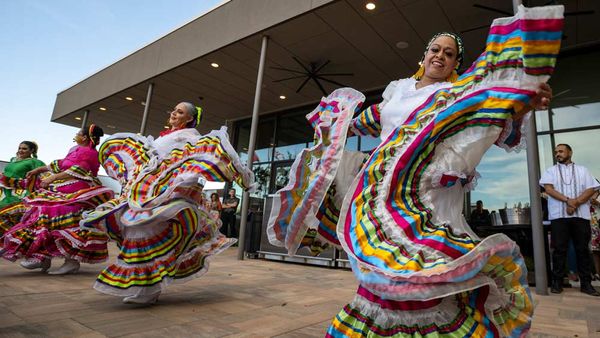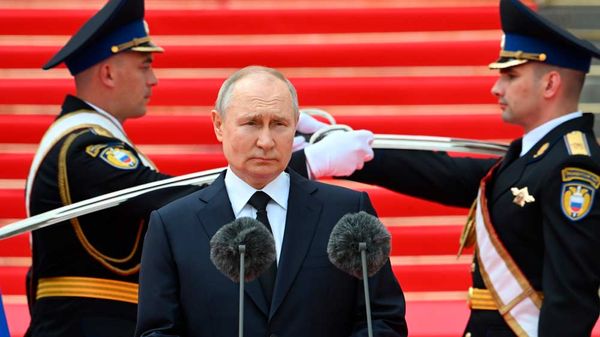July 16, 2007
AIDS case deal may forgive Libyan debt
David Foucher READ TIME: 3 MIN.
TRIPOLI, Libya - Several eastern European countries would forgive Libyan debt dating back to the Cold War under a proposal to compensate families whose children were allegedly infected with the AIDS virus by five Bulgarian nurses and a Palestinian doctor, a victims' advocate said Saturday.
The six foreign medics have been sentenced to death in the case, and Libyan officials have said a settlement could pave the way for their release.
Jailed since 1999, the six deny having infected more than 400 children and say their confessions were extracted under torture. Experts and outside scientific reports have said the children were contaminated as a result of unhygienic conditions at a hospital in the northeastern coastal city of Benghazi. Fifty of the infected children died.
Libya's Supreme Court upheld the death sentences for the medics in an appeal ruling on Wednesday. But that decision could still be overturned by country's highest judicial authority, the Supreme Judiciary Council, which is set to review the case on Monday. The council could approve or reject the convictions or set lighter sentences.
Idriss Lagha, head of the Association for the Families of HIV-Infected Children, told The Associated Press that a settlement was being finalized involving the transfer of money to a fund through the remission of debt to Bulgaria and several other eastern European countries.
Seif al Islam, the son of longtime Libyan leader Moammar Gadhafi, told a French newspaper published on Saturday that $400 million in compensation would be paid to the families.
"The indemnities are financed by international contributions in the form of debt remission," the newspaper Le Figaro quoted him as saying. "The concerned countries are Bulgaria, Slovakia, Croatia and the Czech Republic."
An agreement on the case has "not yet been reached" with the European Union, said Seif al Islam, who heads a powerful Libyan association that has worked to resolve the deadlock.
Government officials from Bulgaria and other nations reportedly involved in the deal have all denied they were sending cash to the families.
Le Figaro, without citing sources, reported that each family would get $1 million.
Companies in the four countries are all owed money from Libya largely dating back to the communist era. Bulgaria says Libya owes it $290 million, and the Czech news agency CTK put the Libyan debt to Prague at about $300 million in 2002.
The spokeswoman for Slovakia's ruling party said Saturday that Prime Minister Robert Fico had discussed with Libyan officials in February the possibility of using some of the country's debt to compensate the families.
Katarina Klizanova Rysova said negotiations between the two countries were still under way, but any deal would require Libya to eventually repay the debt.
"Slovakia can provide the finances for the Libyan families only on condition that the debt is paid off," she said.
Rysova said Libyan debt to her country was about $130 million, but the final sum was still being negotiated.
Bulgarian Foreign Minister Ivailo Kalfin reiterated Friday that Bulgaria would not pay compensations because that would imply the medics were guilty. But he also said he was optimistic a settlement was close that could result in the medics being pardoned.
A Foreign Ministry spokesman was not immediately available for comment Saturday.
Czech Foreign Ministry spokeswoman Zuzana Opletalova said the medics' case "is not over yet and it is premature to speak about any compensation."
The Czech Finance Ministry would not comment.
The Libyan government is under intense international pressure to free the medics. The case has become a sticking point in the regime's attempts to rebuild ties with the United States and European countries.
Libyan officials have said the families' acceptance of a compensation settlement is key to resolving the deadlock and would allow the death sentence to be withdrawn.
Often referred to as "blood money," compensation for death or suffering is a legal provision in the traditional Islamic code in the Middle East and North Africa.
David Foucher is the CEO of the EDGE Media Network and Pride Labs LLC, is a member of the National Lesbian & Gay Journalist Association, and is accredited with the Online Society of Film Critics. David lives with his daughter in Dedham MA.




